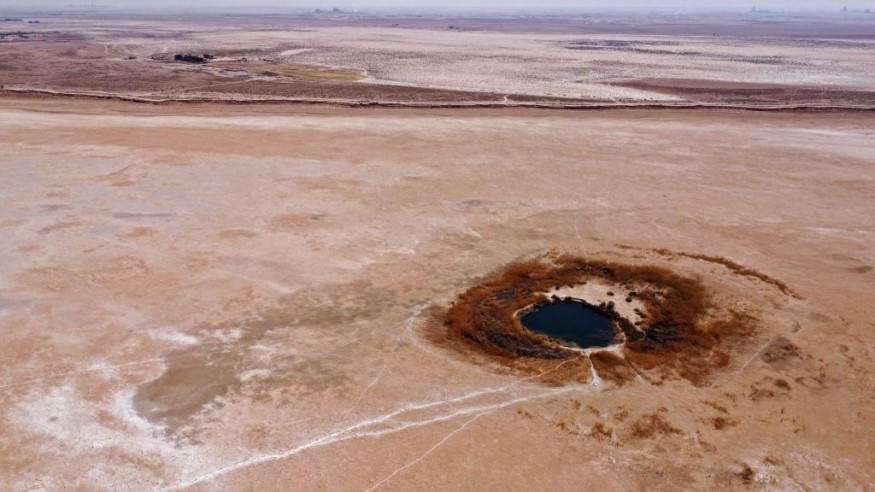It would take a miracle to restore Lake Sawa to life in Iraq, one of the five countries most susceptible to climate change.
Desertification in the area has been increased by overuse, human activities, and climate change.
#ImageOfTheDay
— 🇪🇺 DG DEFIS #StrongerTogether (@defis_eu) April 24, 2022
Al Sawa was a salt lake in #Iraq's Muthanna province 🇮🇶
➡️After a second consecutive year of severe #drought in the country, the lake has dried up
⬇️The absence of water is visible when comparing #Copernicus #Sentinel2 🇪🇺🛰️images of ↙️ 2017 and ↘️ 2022 pic.twitter.com/Q385CVfE2c
On the outskirts of Iraq's western desert, just south of Baghdad, the previously two-square-mile Lake Sawa has been drying up since 2014 and has now been reduced to a bit of pond.
According to AFP, a "no fishing" sign rusted over boats, and ancient piers remain, but the water has long since vanished, leaving this once famous tourist site looking entirely abandoned.
Drying Lake

According to an Iraqi official statement, a large volume of water was drained from the lake from over 1,000 illegally dug wells and surrounding companies.
After years of drought, the region would require multiple seasons of heavy rainfall to change its current situation.
However, the much-needed rain is unlikely to arrive anytime soon.
According to Aoun Dhiab, a senior advisor at Iraq's water resources ministry, rainfall in the region has dropped dramatically. The dramatic decline in precipitation in the region has depressed the already low subsurface water table.
Meanwhile, officials have prohibited the construction of new wells and are attempting to shut down all unlawful wells.
Dhiab, who has spent the last decade working to improve environmental consciousness, recalls going to Lake Sawa on school excursions or holidays with his family.
"The lake would not have evaporated at this rate if the government had taken an interest; it is amazing," Dhiab remarked in an interview with AFP. "I'm 60 years old, and I grew up next to the lake; I assumed I'd outlive it, but it tragically outlived me."
A Former Tourist Hotspot
Tourists used to flock to Lake Sawa in droves, with an estimated 7,000 people arriving each year.
Many people come to the region searching for health and religious and spiritual reasons.
An underground water table, according to AFP, supplied the lake with water rich in critical elements such as sodium, potassium, calcium, magnesium, sulfur, chlorine, and carbonates.
Additionally, people with skin problems have gone swimming in the lake in the past, hoping that the water's mineral content would alleviate their condition.
However, as the mineral-rich water evaporated, numerous hotels, some of which date back to the 1990s, have been abandoned, and the lake's biodiversity has rapidly declined.
"The lake has vanished for the first time this year," environmental campaigner Husam Subhu told AFP.
"In past years, the water area has diminished over the dry seasons, but this year, the lake has vanished, which is a strong evidence of climate change's influence on the region."
Lake Sawa was designated a national treasure because of its extensive natural presence, particularly biodiversity.
Many biodiverse species that were on the verge of extinction on a global scale called the lake home, and it was a good stopover for many migrating birds.
Small fish are the only animals that flourish in the region now that the lake has been reduced to a little pond.
Drought Threat
Drought is threatening Lake Sawa and other bodies of water throughout Iraq.
Razzaza Lake, Iraq's second-largest lake, is drying up, and dead fish are being discovered along its old shores.
Hundreds of families used to make their living by fishing from Razzaza Lake, but the quantity of dead fish now outnumbers the number of fish they can capture alive.
The decline of Lake Sawa will be accelerated by rising temperatures and exploitation of the area's natural water supplies, and there may soon be no little pond left.
For similar news, don't forget to follow Nature World News!
© 2025 NatureWorldNews.com All rights reserved. Do not reproduce without permission.

